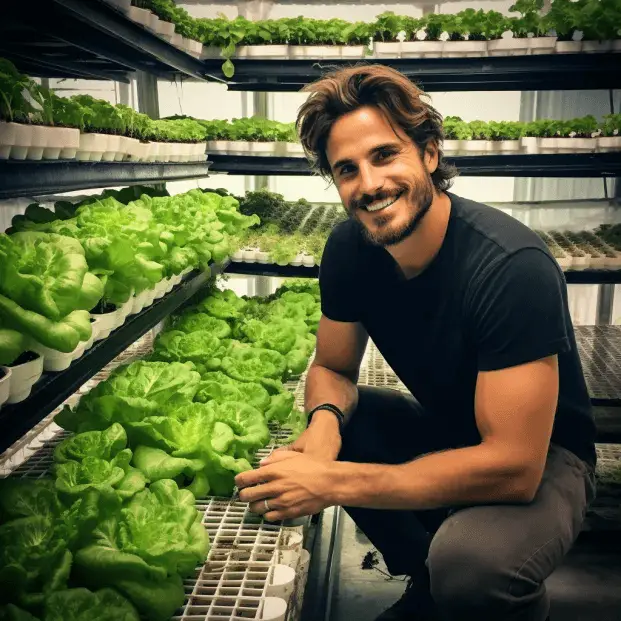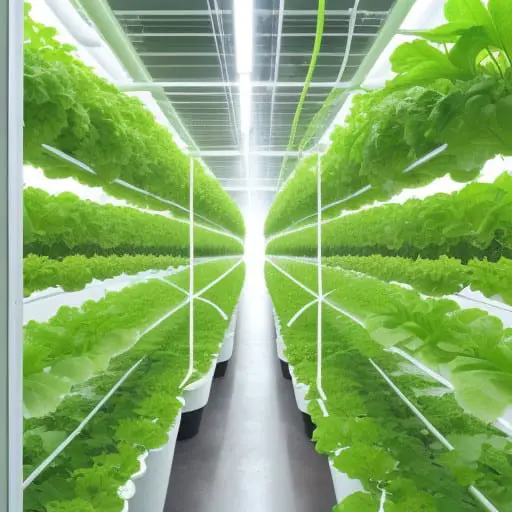According to horticulturist Dr. Emily, “Certain plants, such as root vegetables like carrots and potatoes, do not thrive in hydroponic systems due to their specific growth requirements and root structure.”
Curious about which plants don’t perform well in hydroponics?
In this comprehensive guide, we’ll explore the fascinating world of hydroponic gardening and shed light on the plants that pose challenges in this soil-less growing method.
We’ll delve into the reasons behind their struggle, discuss alternative options, and provide expert tips to maximize your hydroponic gardening success.
Whether you’re a seasoned hydroponic enthusiast or just starting out, this knowledge will empower you to make informed decisions and create thriving hydroponic gardens.
So, let’s dive in and uncover the secrets of hydroponic plant selection!
Key Takeaways
- In hydroponics, root vegetables such as carrots and potatoes, which require loose soil for proper root development, are not suitable for hydroponic systems due to the absence of soil.
- Plants with deep taproots like dandelions and sunflowers may struggle in hydroponic setups as they typically offer shallow or suspended root zones, limiting proper growth and development.
Exploring Plants Unsuitable for Hydroponics
While hydroponics offers an innovative way to grow plants without soil, it’s important to understand that not all varieties are well-suited for this growing method. Some plants face unique challenges that can hinder their growth and productivity in hydroponic systems.
Understanding Limitations
Source: Green Living Off Grid
Certain plant types have specific requirements that may not be easily met in a hydroponic environment. Factors like root structure, support needs, and nutrient preferences can all play a role in determining a plant’s suitability for soilless cultivation.
Optimal Plant Selection
Knowing which plants are likely to struggle in hydroponics is crucial for ensuring a successful and bountiful hydroponic garden. By selecting the right varieties, you can avoid potential issues and focus your efforts on crops that will truly thrive in these systems.
Plant that Are Unsuited for Hydroponics
While hydroponics offers a unique way to grow plants without soil, not all varieties are well-suited for this growing method. Let’s explore the types of plants that may struggle in hydroponic setups:
Root Vegetables
Limitation
Many root veggies prioritize underground growth and development of their edible roots, tubers, or bulbs. This can be challenging to achieve in hydroponic systems.(1)
Examples
- Carrots
- Potatoes
- Onions
- Garlic
- Radishes
- Sweet Potatoes
Large Root Systems
Challenge
Plants with extensive, spreading root systems require ample space and sturdy support, which conventional hydroponic setups may not provide.
Examples
- Trees
- Pumpkins
- Melons
- Corn
Plants Requiring Extensive Support
Hurdle
Certain climbing plants, like vining crops, require substantial support structures (trellises, cages) that aren’t typically included in basic hydroponic systems.
Examples
- Indeterminate Tomatoes
- Pole Beans
- Climbing Pepper Varieties
- Peas
Other Challenging Plants
- Sunflowers (large root systems, nutrient intensive)
- Fruit Trees (space constraints, root system size)
Pro Tip: Do your research and start with crops well-suited for hydroponics, such as leafy greens, herbs, and compact fruiting varieties.
Don’t be discouraged if certain plants don’t thrive – every grower learns through experience! With some trial and error, you’ll discover which plants are the perfect fit for your hydroponic garden.
Other Effects of Plants Not Suitable for Hydroponics
Beyond the challenges posed by root vegetables, plants with extensive root systems, and vining crops, there are a few other factors that can make certain plants unsuitable for hydroponic cultivation.
Plant Size
Limitation
Large, sprawling plants like trees or shrubs may quickly overwhelm the limited space of a hydroponic system. Their size and vigor can make it difficult to provide adequate support and nutrients.(2)
Examples
- Fruit Trees
- Palm Trees
- Large Cacti
Nutrient Requirements
Challenge
Some plants have exceptionally high nutrient demands, requiring precise nutrient management that can be tricky to achieve in hydroponic environments.
Examples
- Sunflowers
- Corn
While adjustments can be made, these nutrient-hungry plants may struggle to thrive without diligent care and monitoring.
Acidity Preferences
Certain plants, like blueberries and azaleas, prefer highly acidic growing conditions. Maintaining the proper pH level can be challenging in hydroponic systems without specialized equipment and techniques.
Conclusion
In wrapping up, it’s clear that certain plants face challenges in hydroponic systems.
Root vegetables like potatoes and carrots, along with plants with extensive root systems or requiring significant support, struggle to thrive in these setups.
Understanding these limitations helps growers make informed decisions about which plants to cultivate hydroponically.
Despite these constraints, many vegetables, herbs, and fruits excel in hydroponic environments, offering efficient growth and nutrient uptake.
By selecting suitable plants and providing proper care, hydroponic gardeners can achieve success and enjoy bountiful harvests.
Share your hydroponic gardening experiences in the comments below and keep growing!
References
- https://mavengardening.com/hydroponic-root-vegetables/
- https://www.nosoilsolutions.com/simple-guide-hydroponic-plant-spacing/
Related Articles
- https://tophydroponicgarden.com/hydroponic-first-plant/
- https://tophydroponicgarden.com/plant-grown-with-hydroponics/
- https://tophydroponicgarden.com/plants-dont-do-well-in-hydroponics/
- https://tophydroponicgarden.com/start-plants-in-hydroponics/
Was this helpful?

I’m Barrie L., a passionate hydroponic gardening enthusiast dedicated to cultivating thriving, soil-less gardens. With a focus on all things hydroponic, I share my expertise on innovative growing techniques and sustainable practices through my blog, tophydroponicgarden.com. As a seasoned hydroponics specialist, my goal is to inspire and guide fellow gardeners in harnessing the power of water-based cultivation for bountiful and eco-friendly harvests. I’m also an author of the book “Hydroponics For Absolute Beginners: Your Step By Step Guide For How To Create An Hydroponics System At Home Without Soil, For Growing Vegetable, Fruit And Herbs.” which is sold on Amazon. Join me on a journey of redefining the way we cultivate plants, one nutrient-rich solution at a time. Happy growing!


